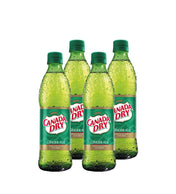Mezcal is a distilled alcoholic beverage produced from the fermentation and distillation of agave juice, a succulent plant found primarily in Mexico. Although it shares similarities with tequila, which is also made from agave, mezcal has its own distinctive characteristics.
The Origin of Mezcal:
Mezcal has deep roots in Mexican culture and is produced in several regions of the country, with Oaxaca being the best known for the quality of its mezcal. However, it is also produced in other areas such as Durango, Guerrero, Zacatecas and Michoacán.
Mezcal production process:
Making mezcal involves harvesting agave piñas, which are cooked in underground pits with hot stones and covered with agave leaves to ferment. The cooked pineapples are then ground to extract the juice, which is fermented and distilled in traditional copper stills.
Mezcal and its Agave Varieties:
Mezcal can be made from several species of agave, each with its own flavor characteristics. Some of the most common varieties are Espadín, Tobalá, Tobaziche and Mezcalero.
How to take Mezcal:
Mezcal is known for its robust and complex flavor, with smoky and earthy notes. It is usually enjoyed neat, at room temperature, to fully appreciate its flavor profile. It is also common to drink it accompanied by orange and salt, although some purists prefer to drink it without these additives.
What is Mezcal mixed or combined with:
Although many mezcal lovers prefer to enjoy it neat, it can also be used in cocktails. Some popular recipes include the "Mezcal Mule" (similar to the Moscow Mule, but with mezcal), the "Mezcal Negroni" (substituting gin for mezcal), and the "Mezcal Margarita." However, it is important to choose quality mezcals to maintain the integrity of the flavors in the cocktails.
Remember that mezcal is an alcoholic beverage, and should be consumed responsibly. Additionally, quality and flavor can vary between different brands and types of mezcal, so exploring different options can be a fascinating experience for lovers of this drink.








